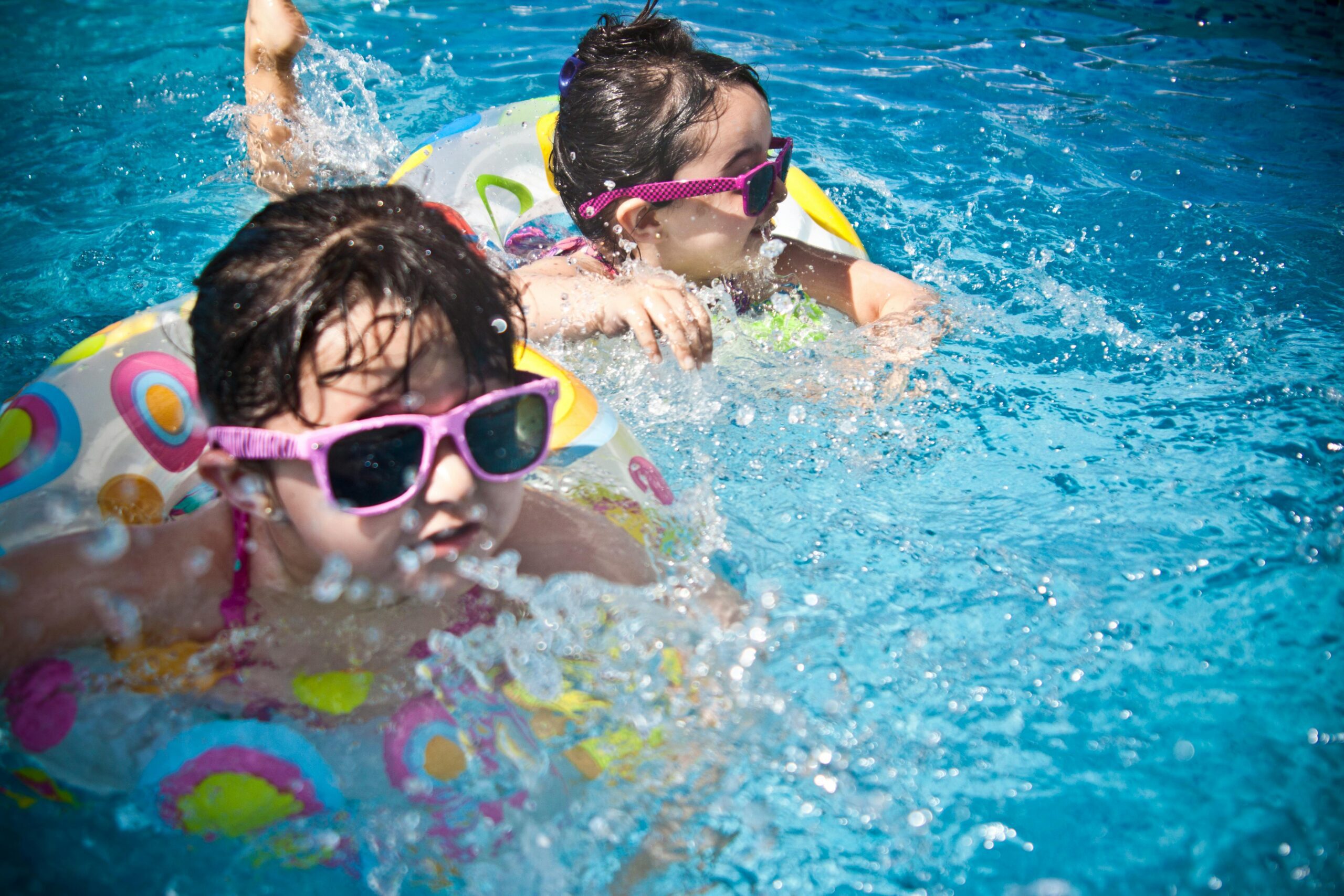Taking your child to the pool for swimming when they are too young might seem crazy but it’s beneficial.
Playing in the water and sliding through it can have many advantages.
When your baby kicks, glides, and smacks at the water, billions of new neurons are created in their bodies, stimulating their body in a way that is entirely new to them.
Doctors usually advise parents to keep their infants away from chlorinated pools or lakes until they are six months old due to their sensitive immune systems.
However, you want to introduce your child to the pool soon. Children who wait until later to get their feet wet have more fear and negative attitudes toward swimming.
Benefits of swimming for babies and toddlers
Here’s the lowdown on the possible advantages of taking babies swimming.
Swimming improves cognitive functioning.
One of the benefits of swimming for babies and toddlers is improving cognitive functioning. Using both sides of the body to act, or bilateral cross-patterning movements, aids in the baby’s brain development. When performing cross-patterning movements, the corpus callosum experiences neuron development. These facilitate communication, feedback, and modulation.
Your baby kicks their legs and moves their arms while swimming. Since they are performing these movements in the water, their brain is processing the water’s resistance and tactile feel. Swimming stimulates the brain and enhances the unique social experience.
Decision making
Decision-making is another benefit of swimming for babies and toddlers. Children gain confidence when they learn to make decisions and handle the fallout. Children can choose from a variety of options during swimming lessons. These include games or activities to play or which stroke to concentrate on as they get better and want to move on to more competitive swimming.
Children will make mistakes, of course, but if they are allowed to make choices and deal with the fallout, their self-esteem will soar, and they will learn how to make better decisions.
Swimming improves confidence and independence.
Letting a kid be independent is one of the best ways to help them develop confidence. A child’s ability to swim successfully mostly depends on their level of independence. Children can receive some support from their parents or swimming instructors, but even infant swimming lessons eventually teach a child to be completely independent. While older children learn how to navigate the water, infants learn how to survive if they accidentally fall in. When given the freedom to be independent, children learn to trust their instincts and feelings, which boosts their confidence.
Babies who take swimming lessons will soon see results. Even though the improvements might come in small steps, a skilled educator and parent will be able to recognize these advancements and help the child see their success. With regular instruction, children often progress faster once they get used to the water. Observing their growth and success boosts their confidence and motivates them to learn more.
Building skills
Swimming enhances coordination, burns fat, and tones muscles. Not only is this beneficial to a child’s general health, but it also boosts self-esteem and mental well-being. Many kids will start competing in swimming as they grow their abilities. Swimming helps kids build confidence as they compete with other kids. It also helps kids build skills as they push themselves to achieve personal bests and growth.
Swimming increases quality time between the child and the caregivers
The act of a parent swimming with their children fosters one-on-one bonding, even in families with multiple children. Recommend experts who offer swim lessons. During a lesson, you and your child are focused solely on each other, making it a great way to spend quality time alone.
Swimming builds muscles
Building muscles is another benefit of swimming for babies and toddlers. When babies are young, swimming helps to foster critical muscle development and control. Young children must grow the muscles necessary to raise their heads, move their arms and legs, and engage their core with the rest of their body.
Swimming is also great for your child’s cardiovascular health. Swimming strengthens the heart, lungs, brain, and blood vessels.
Swimming improves sleeping patterns.
Babies require a lot of energy during pool time. They are in a new environment, use their bodies differently, and exert extra effort to stay warm.
Because of the increased energy from that extra activity, you will notice that your child sleeps more after a swim lesson. If taking a nap after spending time in the pool is part of your routine, you might need to adjust your bedtime on their swimming.
Improves appetite
Nothing consumes you faster than spending a day at the beach or a pool, and babies are no exception. They burn many calories from their physical exertion in the water and the energy required for their bodies to stay warm. Your baby’s appetite will most likely increase after regular swimming time.
Tips to keep in mind when babies and toddlers are around water
- When your child is swimming, always make sure they are under adult supervision.
- Uphold safety precautions around the pool, such as refraining from running or pushing people under.
- When in a boat, wear a life jacket. Never allow mattresses or inflatable toys to be used in place of a life jacket.
- If your pool has a cover, take the cover off completely before swimming.
- If you’re watching kids swim, avoid drinking alcohol and get rid of any distractions like using a computer or talking on the phone.
Swimming can be a very safe activity if you’re taking all the required safety precautions and providing your baby with your full attention.
Infant swimming fosters wonderful parent-child bonding experiences. It is rare in this busy times, fast-paced life to have some time to just enjoy an experience together.
Spending time in the pool with our infants teaches them vital life skills and helps us stay in the present. Put on your swimsuit and dive in!

